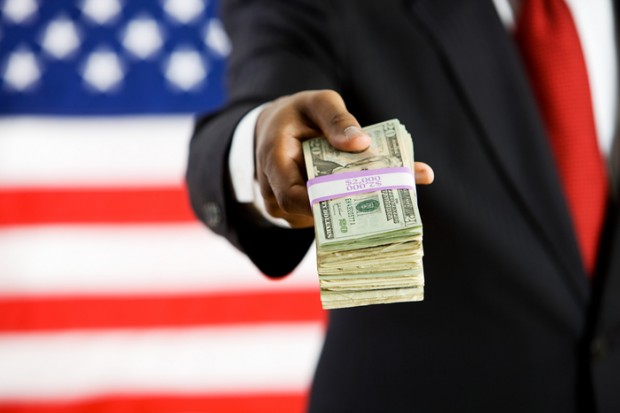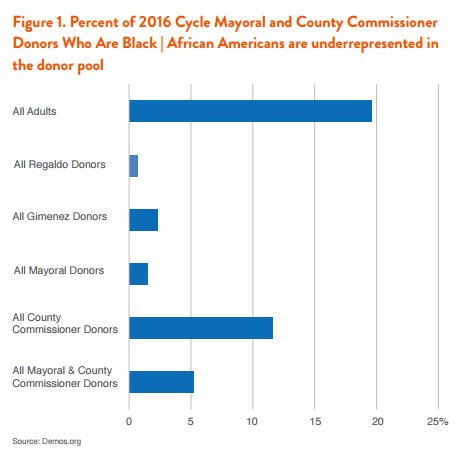
Miami’s black political donors drowned out by rich developers, study finds
Black people make up one-fifth of Miami-Dade County’s population. It doesn’t exactly take a Nobel Laureate to see the county hasn’t always treated its majority-black neighborhoods with a ton of respect.
There’s no one reason for the routine neglect of African-American areas, but a study released today by the civil rights advocacy group Demos pinpoints a huge government-access problem in South Florida: Black people, the study says, can’t keep up with the deluge of campaign money coming from Miami’s cadre of rich lawyers, lobbyists, investors, and real-estate tycoons.
Per the study, African-Americans made up just 2 percent of donors in the 2016 mayoral race and only 5 percent of donors across every race in the county. The study finds that black donors are drowned out of the political process by Miami-Dade’s big-money donors.
“This population is massively outspent by big donors,” the study says. “This could severely discount black interests in political considerations and reduce the black community’s stake in local politics.”
Granted, the one-percenter stranglehold on American politics is an issue for everyone, nationwide, since (A) basically no one can compete with the unfettered waterfalls of dark money flooding our entire political ecosystem, and (B) it’s truly sad that simply being a human doesn’t automatically mean you qualify for equal political representation.
But Miami is an apocalyptic warning of what can happen when big-money interests control a town. Services that Miami-Dade’s poorest residents really need, such as any semblance of a functioning public-transit system, still don’t exist. Home prices are disturbingly steep. And good luck finding a job that isn’t part of the service industry. (Miami was named the “worst city to live in America” for a reason, after all.)
According to the study, black people do not make up a representative share of either the two current county mayoral candidates’ donation rolls. “Black donors make up a minuscule share of donors to the two mayoral candidates that Demos examined, Carlos Gimenez and Raquel Regalado,” the study says.
Interestingly, the study does say that black people are accurately represented on the county commission, because four commissioners, including Chairman Jean Monestime, are black, and that, among small donors giving around $100, black people are actually somewhat overrepresented.
But despite the high-profile success of a candidate like Bernie Sanders, who nearly rode a wave of tiny donations all the way to the White House, Miami’s black population hasn’t been able to beat back the influence of big-money donors such as Miami’s Wayne Rosen, a developer bankrolling Gimenez’s current run for office.

Instead, Demos says, a ballot initiative is being circulated around the county that would, among other reforms, lower the county’s maximum contribution limits and prohibit county contractors and lobbyists from donating to mayoral campaigns.
“Because African-Americans make up a larger share of the small donor pool,” Demos writes, “a robust public-financing system would empower black voters in Miami-Dade.”
(From Miami New Times)

